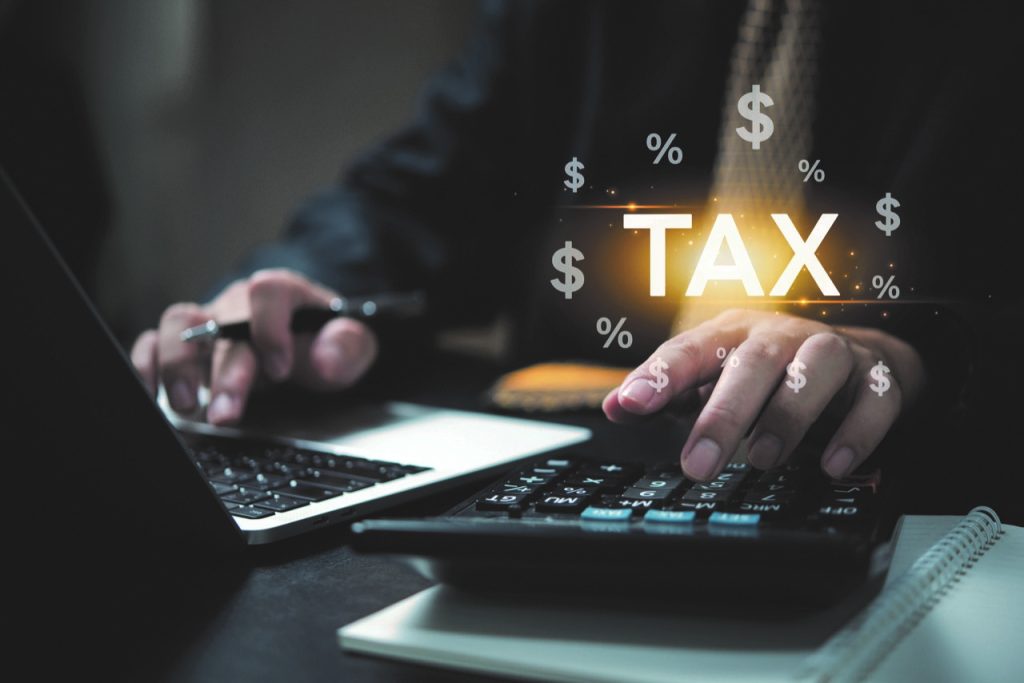ATO Assistant Commissioner Angela Allen talks about how the ATO is supporting small businesses to get it right and stay on track.
Small business focus areas
In late 2024, we launched ‘Getting it right’, a campaign designed to support small businesses do just that: get it right, from the start. We know most small businesses want to do the right thing, so to better support them and their advisers, we are being transparent about what behaviours are drawing our attention.
Each quarter, we highlight specific focus areas where small businesses make mistakes, are being opportunistic or deliberately doing the wrong thing on an ongoing basis. By being clear about what we’re targeting and clear about the consequences of doing the wrong thing, we want to help you get it right.
Find out more about the ATO’s focus areas at ato.gov.au/sbfocusareas
Property and construction industry
We want to help businesses in property and construction understand their tax and super obligations and report correctly. Common mistakes we are seeing include not reporting all income, misclassifying property development income, overclaiming expenses and GST credits, and failing to register for GST.
To stay on track, businesses need to report all assessable income, including anything deposited into private accounts that’s linked to business activity, and correctly apportion expenses used for both business and private purposes. With a renewed focus on this industry, we may contact you to better understand your circumstances, request you make an amendment or conduct an audit if something doesn’t add up.
Contractors omitting income
We’re currently keeping a close eye on contractors who don’t report all their income. Under the Taxable Payments Reporting System (TPRS), businesses must report payments made to contractors providing construction, IT, cleaning, road freight, courier, and security services.
That means if you’re a contractor providing any of these services, we already know what you earned and we’re matching it against your tax return. If something’s missing, you may receive a prompt from us asking you to amend your return. If you ignore our prompt you could be looking at penalties and interest, or even an audit. The good news? The ATO’s pre-filling service makes it easy to get it right.
Take Brayden* for example, a carpenter who operates his business as a sole trader. As he provides building and construction services, the building contractors that Brayden provides carpentry services for must report the payments they make to him during the income year.
In the 2024 income year, Brayden didn’t use the pre-filled TPAR amounts for his tax return, which resulted in him not including all his contractor payments in his reported income. On review, the error was identified, and his 2024 assessment was amended to include the missing income.
Next year when Brayden is completing his tax return, he can review and accept the pre-filled TPAR amounts, which will auto fill into his tax return. This will make it easier for him to ensure he has included all his contractor payments in his income.
Monthly GST reporting
Changing your GST reporting cycle to monthly could be beneficial to your business. Monthly reporting means smaller, more manageable payments, so you can better track your cash flow and make more informed decisions and forecasts from month to month. It’ll also better align with your other regular business processes like invoicing, reconciling figures and paying suppliers, making it easier to stay organised and on top of your obligations.
Personal services income
You can earn personal services income (PSI) in almost any industry, trade, or profession, directly as a sole trader, or through another entity such as a company, partnership or trust. Common examples include but are not limited to financial professionals, information technology consultants, engineers, construction workers or medical practitioners.
Your income is classified as PSI when more than 50% of it is earned for your personal efforts or skills, rather than being generated by the use of assets, the sale of goods, or from a business structure.
For example, if you’re a consultant and you charge $1,000 for a training session, $900 of which is for your expertise, then all of the income would be classified as PSI. However, if you’re a builder and charge $15,000 to renovate a bathroom, and materials for the renovation cost you $9,000, this is not PSI as less than 50% of the income is for your personal labour.
If you earn PSI, the first thing you’ll need to do is work through the PSI rules and work out if they apply to your income. To do this, you need to self-assess if you’re a personal services business (PSB) in the year that you received the PSI.
You can self-assess as a PSB if you meet either of the following:
- the ‘results test’ for at least 75% of your PSI – the results test is one of four personal services business (PSB) tests that taxpayers earning personal services income (PSI) can use to self-assess as a PSB
- one of the other PSB tests, and less than 80% of your PSI is from the same entity and its associates.
If you qualify as a PSB, the PSI rules will not apply to the PSI you received in that income year. Remember, even if you’re a PSB, you still need to report PSI in your tax return and keep certain records.
If you’re not a PSB, then the PSI rules apply and will affect how you report PSI and the deductions you can claim.
Find out more at ato.gov.au/PSI
Establish good business habits
We know most businesses try to report correctly but understand mistakes can happen. Establishing good habits will give your business its best chance of success.
To establish good habits you can:
- Use digital tools and business software to streamline your processes and improve efficiency
- Keep accurate and complete records all year round – good record keeping makes tax time easier and helps you stay on top of your tax and super obligations
- Get the right advice from trusted sources, like your registered tax professional or the ATO website
- Lodge and pay your tax in full and on time – if you’re worried you won’t be able to lodge and pay, contact your registered tax professional or visit the ATO website before the due date to find out what support options are available), and
- Set aside GST, pay as you go (PAYG) withholding and super from your cash flow, so you have the funds available when it’s time to pay.
Find out more about good business habits at ato.gov.au/sbhabits
Support and resources
We have a range of tools and services to help small businesses get it right and stay on track:
- Tax Time toolkit for small business – filled with useful information, guides, calculators, learning resources and other support and services
- Essentials to strengthen your small business – free, self-paced courses designed for all stages of business
- Small business newsroom – stay up to date with the latest tax and super info.
You can access these resources at ato.gov.au/SBsupport
Running a small business is serious business, and we’re here to help. With the right tools, habits and support, you can stay on track and focus on what you do best. For detailed advice that’s relevant to you and your specific situation, visit ato.gov.au or speak with your registered tax professional.
*This is a fictional name used for illustrative purposes.
About the author

Angela Allen is an Assistant Commissioner in the Small Business line at the Australian Taxation Office. She is an advocate for small business and continues to influence the end-to-end experience, prioritising education and transparency to help owners get things right from the start. Angela collaborates with other small business advocates, industry partners and government agencies to improve small business experience and digital services. Angela is passionate about investing in people, developing, and mentoring the leaders of tomorrow and inspiring others to reach their full potential.

